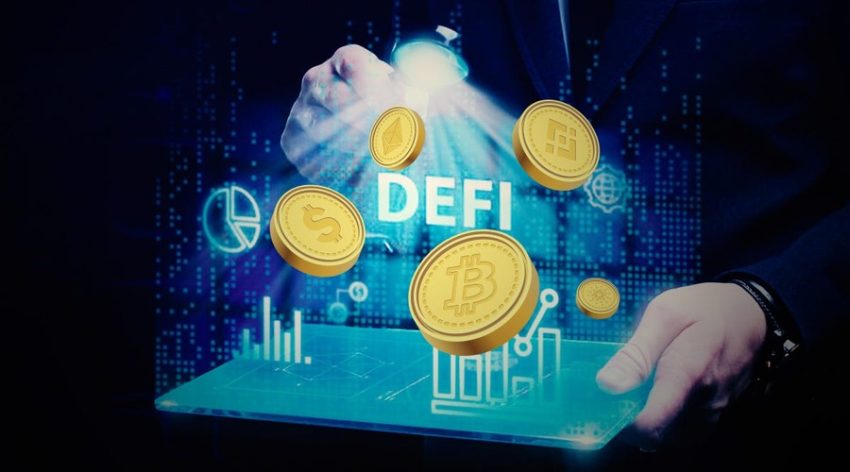In recent years, Decentralized Finance (DeFi) has gained significant traction in the world of cryptocurrencies. DeFi offers a decentralized alternative to traditional financial systems, providing users with greater control over their funds. However, as the popularity of DeFi grows, so does the importance of ensuring the security of DeFi tokens. This article explores the various vulnerabilities associated with DeFi tokens and provides valuable insights into safeguarding against them.
Understanding DeFi Tokens
DeFi tokens are digital assets that power decentralized applications (DApps) within the DeFi ecosystem. These tokens serve various purposes, including facilitating transactions, providing liquidity, and granting voting rights within governance systems. DeFi tokens are typically built on blockchain platforms like Ethereum and operate using smart contracts.
Common Vulnerabilities of DeFi Tokens
Smart Contract Vulnerabilities
Smart contracts form the backbone of DeFi applications, but they can be prone to vulnerabilities if not developed with utmost care. Vulnerabilities such as coding errors, reentrancy attacks, and unchecked external calls can lead to token theft and manipulation. It is crucial for developers to conduct extensive audits and follow best practices to minimize these risks.
Oracle Exploits
DeFi applications often rely on oracles to fetch real-world data, such as price feeds. However, if these oracles are compromised or manipulated, attackers can inject false information into the system, leading to financial losses. Implementing multiple oracles, using reputable sources, and employing secure data verification mechanisms can mitigate these risks.
Governance Risks
Many DeFi projects implement decentralized governance models, allowing token holders to participate in decision-making processes. However, if a small group of malicious actors acquires a majority of tokens, they can manipulate voting outcomes and compromise the project’s integrity. Robust governance mechanisms, such as quadratic voting or reputation-based systems, can help prevent such attacks.
Security of Decentralized Exchanges (DEXs)
Decentralized exchanges are a vital component of the DeFi ecosystem. However, they are susceptible to hacking attempts and exploits. Weaknesses in smart contracts, improper token listing procedures, and vulnerabilities in the underlying blockchain can lead to theft of funds. Users should exercise caution when trading on DEXs and opt for platforms with a strong track record and security measures.
Best Practices for Securing DeFi Tokens
To safeguard against vulnerabilities, here are some best practices to consider when dealing with DeFi tokens:
Conduct Thorough Due Diligence
Before investing in or interacting with any DeFi project, conduct thorough research. Analyze the project’s team, review the smart contracts, assess the community’s sentiment, and evaluate the project’s overall viability. By conducting due diligence, you can reduce the risk of falling victim to fraudulent or vulnerable projects.
Choose Secure Wallet Solutions
Selecting a reliable and secure wallet is crucial for protecting your DeFi tokens. Hardware wallets, such as Ledger or Trezor, offer offline storage and strong encryption, making them less vulnerable to attacks. Ensure you keep your wallet’s seed phrase secure and never share it with anyone.
Diversify Token Holdings
Diversification is key to reducing risk in any investment portfolio, including DeFi tokens. By spreading your token holdings across different projects, you minimize the impact of a potential security breach or failure of a single project. Diversification allows you to balance potential gains with potential losses.
Stay Informed about Token Projects
Stay updated on the latest developments, news, and security audits of the DeFi projects you are invested in. Follow project updates, read community discussions, and subscribe to reputable sources for accurate information. Being informed allows you to make informed decisions and stay ahead of potential risks.
Implement Multi-Factor Authentication (MFA)
Enable multi-factor authentication for all your DeFi-related accounts and platforms. MFA adds an extra layer of security by requiring additional verification beyond just a password. This reduces the risk of unauthorized access even if your password is compromised.
Use Hardware Wallets for Cold Storage
Consider using hardware wallets for long-term storage of your DeFi tokens. Cold storage keeps your tokens offline and away from potential online threats. Hardware wallets are designed to provide secure storage and transaction signing, minimizing the risk of token theft.
Be Cautious of Third-Party Applications
Exercise caution when using third-party applications related to DeFi. While there are legitimate applications that enhance DeFi usability, malicious actors can create fake applications to steal users’ tokens. Always verify the authenticity of the application and only use trusted sources.
Regularly Update Software and Firmware
Keep your software and firmware up to date. Developers often release updates to address security vulnerabilities and improve overall system integrity. By staying updated, you ensure that you have the latest security patches and enhancements.

Importance of Auditing DeFi Projects
Auditing DeFi projects is crucial to identify and rectify vulnerabilities before they can be exploited. Independent security audits by reputable firms provide valuable insights into the project’s code, architecture, and overall security posture. Token holders should prioritize projects that have undergone thorough audits to reduce the risk of potential vulnerabilities.
The importance of auditing DeFi projects cannot be overstated. Auditing plays a crucial role in ensuring the security and integrity of decentralized finance platforms. Here are the key reasons why auditing DeFi projects is of utmost importance:
- Identifying Vulnerabilities: Auditing helps identify vulnerabilities and weaknesses in smart contracts, ensuring that potential security risks are identified and addressed before they can be exploited by malicious actors.
- Enhancing User Confidence: Audited DeFi projects inspire confidence among users and investors. By undergoing independent security audits, projects demonstrate their commitment to transparency and security, which helps build trust in the platform.
- Preventing Financial Losses: Auditing helps prevent financial losses resulting from vulnerabilities or exploits. By thoroughly assessing the code and system architecture, auditors can identify potential loopholes and provide recommendations for strengthening the project’s security.
- Maintaining Platform Reputation: A strong reputation is crucial for the success of any DeFi project. By undergoing regular audits, projects can demonstrate their commitment to security and attract more users and investors who prioritize safety.
- Meeting Regulatory Requirements: Auditing can help DeFi projects meet regulatory requirements. As the regulatory landscape evolves, audited projects are more likely to comply with security standards, ensuring a smoother relationship with regulatory authorities.
- Protecting User Funds: Auditing helps protect user funds by identifying vulnerabilities that could lead to token theft or loss. By addressing these vulnerabilities, projects can provide a safer environment for users to interact with DeFi applications.
- Encouraging Innovation: Auditing promotes innovation in the DeFi space. By identifying and rectifying vulnerabilities, auditors provide valuable feedback to project teams, enabling them to improve their code and security practices, ultimately advancing the overall ecosystem.
- Building Long-Term Sustainability: Auditing contributes to the long-term sustainability of DeFi projects. By ensuring the security and integrity of the platform, audited projects are better equipped to withstand potential attacks and continue to provide value to their users over time.
In conclusion, auditing DeFi projects is crucial for identifying vulnerabilities, enhancing user confidence, preventing financial losses, and maintaining the reputation and long-term sustainability of decentralized finance platforms. By prioritizing security audits, the DeFi ecosystem can continue to grow and thrive while providing a safer environment for users and investors.
The Role of Regulation in DeFi Token Security
The regulatory landscape surrounding DeFi is still evolving. While the decentralized nature of DeFi offers advantages in terms of censorship resistance and financial inclusivity, it also presents challenges in terms of security and investor protection. Regulatory frameworks can play a crucial role in ensuring that DeFi projects adhere to security standards and protect investors’ interests.
Conclusion
DeFi tokens provide exciting opportunities for users to participate in decentralized finance. However, it is essential to be aware of the vulnerabilities associated with DeFi tokens and take appropriate measures to safeguard against them. By following best practices, conducting due diligence, and staying informed, users can mitigate risks and enjoy the benefits of DeFi with greater peace of mind.
FAQs
Q1: Are DeFi tokens a safe investment? A1: Investing in DeFi tokens carries risks, just like any other investment. It is important to conduct thorough research, assess the project’s security measures, and stay updated on the latest developments to make informed investment decisions.
Q2: Can DeFi tokens be hacked? A2: While DeFi tokens are built on secure blockchain platforms, vulnerabilities in smart contracts, oracle exploits, and weaknesses in decentralized exchanges can expose tokens to hacking attempts. Implementing security best practices can help reduce the risk of such attacks.
Q3: What should I do if I suspect a security breach in a DeFi project? A3: If you suspect a security breach or vulnerability in a DeFi project, it is important to report it to the project’s team or community. They can take appropriate measures to investigate and address the issue.
Q4: How often should I update my wallet software and firmware? A4: It is recommended to regularly update your wallet software and firmware to ensure you have the latest security patches. Developers release updates to address vulnerabilities and enhance security, so staying updated is crucial.
Q5: Can regulation help improve DeFi token security? A5: Regulation can play a role in establishing security standards and investor protection measures for DeFi projects. While striking a balance between regulation and maintaining the decentralized nature of DeFi is challenging, well-designed regulations can enhance security and user confidence.
I have been writing about Bitcoin and other digital currencies for the past two years. I have a strong understanding of the technology behind these assets and how they work. I am also well-versed in the regulatory landscape surrounding them. I have published articles on a variety of topics related to cryptocurrencies, including their price movements, major announcements, and new developments in the space. I have also interviewed some of the leading figures in the industry.

